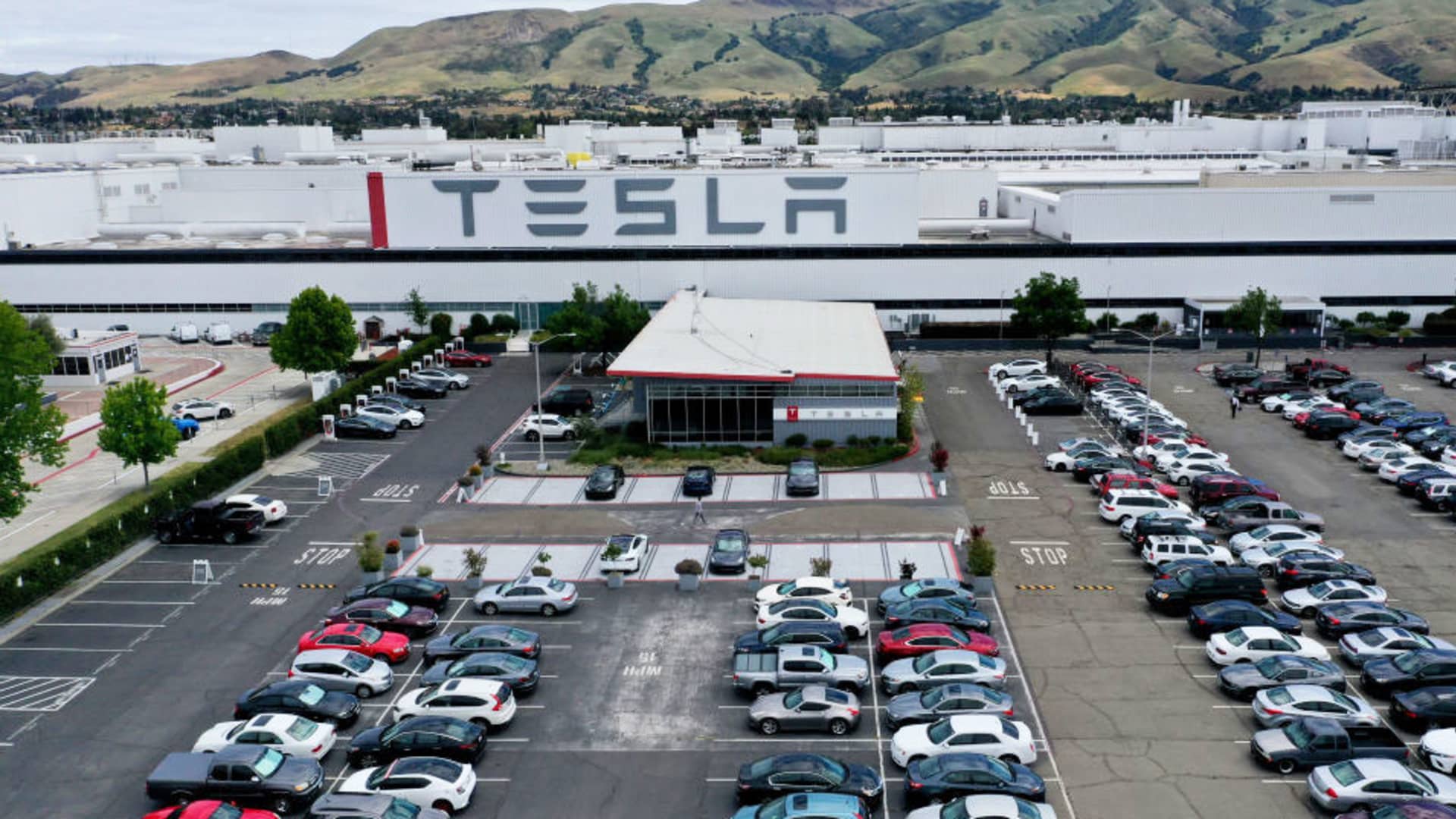Electric vehicle maker Tesla was sued by district attorneys representing 25 counties in California over the company’s alleged improper handling of hazardous waste materials at facilities throughout the state.
Although Tesla is now headquartered in Austin, Texas, it was previously headquartered in Palo Alto, California, where it maintains its engineering headquarters. The company’s first, high-volume EV factory in the world was its Fremont, California, vehicle assembly plant, which it still owns and operates today.
The lawsuit, The People of the State of California v. Tesla Inc., was filed in a California state court in San Joaquin County on Tuesday. Reuters first reported on the litigation.
The district attorneys alleged in their complaint, among other things, that Tesla had: “intentionally disposed of, and intentionally caused the disposal of hazardous waste” at points that were “not authorized” nor appropriately equipped to handle that material.
They also alleged that Tesla often failed to accurately label containers of hazardous materials that it generated, used or stored at its facilities, and failed to train employees in proper handling of hazardous waste.
Tesla did not immediately respond to a request for comment.
Environmental health and safety specialist Eric Roesch, who has written critically about Tesla and SpaceX on his blog ESGHound for years, evaluated the complaint.
Roesch told CNBC: “At a complex factory like an auto plant, you may expect occasional violations. But this complaint says that Tesla is not even doing basic stuff that anyone who works in an auto body shop would know to do, like labeling and management of things like used oil, spent batteries, used paint — anything that can leach into the groundwater.”
When asked how serious the claims are Roesch added, “The state’s accusation that Tesla continued to violate environmental rules for years ‘intentionally’ and ‘negligently’ suggests that the company’s liability could go beyond civil penalties like fines.”
This lawsuit was not entirely unexpected. In its most recent financial filing, Tesla had disclosed to shareholders:
“District attorneys in certain California counties conducted an investigation into Tesla’s waste segregation practices pursuant to Cal. Health & Saf. Code § 25100 et seq. and Cal. Civil Code § 1798.80.
Tesla has implemented various remedial measures, including conducting training and audits, and enhancements to its site waste management programs, and settlement discussions are ongoing. While the outcome of this matter cannot be determined at this time, it is not currently expected to have a material adverse impact on our business.”
Tesla CEO Elon Musk has repeatedly said the company is on a mission to “accelerate the world’s transition to sustainable energy.”
The company said in its 2022 impact report that Tesla customers avoided releasing around 13.4 million metric tons of carbon emissions that year, equivalent to 33 billion miles of driving by traditional, gasoline-burning cars. However, Tesla has been called out repeatedly for environmental hypocrisy and lax compliance.
In 2022 Tesla paid a settlement fee to the EPA after the agency found it had violated air toxic emission standards from 2016 through 2019 in Fremont. Last year, Tesla was sued in Germany over suspected water contamination and other environmental violations at its recently constructed factory in Brandenburg, Moz.de reported. Tesla also currently ranks 89th on the Political Economy Research Institute list of Toxic 100 air polluters, based on 2021 data.
Don’t miss these stories from CNBC PRO:
- Forget the ‘Magnificent 7,’ these Nasdaq stocks are next in line to lead the rally, according to the charts
- Nvidia is now ‘deeply overbought’ and due for ‘consolidation,’ says chart analyst
- Eli Lilly’s Zepbound is off to a strong start, but here’s what needs to happen to push shares higher
- Investors are shifting into this type of bond fund at the fastest pace in three years
